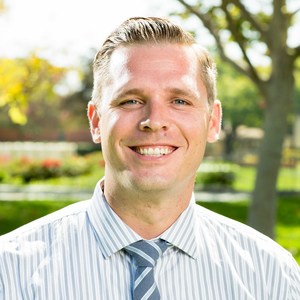After decades of data gathering, the pollster George Gallup concluded, ŌĆ£Americans revere the BibleŌĆöbut, by and large, they don't read it. And because they don't read it, they have become a nation of biblical illiterates.ŌĆØ GallupŌĆÖs grim conclusion is hard to avoid when faced with the facts. The American Bible SocietyŌĆÖs 2014 State of the Bible Report found that half of the country ŌĆ£strongly agreesŌĆØ that ŌĆ£the Bible contains everything a person needs to know to live a meaningful life.ŌĆØ For all of this lofty regard for the Bible, research reveals that over 50% of graduating high school seniors think that Sodom and Gomorrah were husband and wife, 12% of Americans think that Joan of Arc was NoahŌĆÖs wife, over half cannot name the four gospels, and a meager 4% of Christians polled believe poverty to be an issue of primary responsibility for the Church. Many respondents even credited the Sermon on the Mount to Billy Graham.
What Gallup calls a ŌĆ£record lowŌĆØ in biblical literacy finds an embarrassing contrast in Jesus himself. Throughout the gospel narratives, Jesus skillfully cites Scripture no less than 78 times. His biblical literacy did not occur by osmosis. In his early years, he frequented the Jewish temple and ŌĆ£sat among the teachers, listening to them and asking them questions.ŌĆØ He ŌĆ£grew in wisdomŌĆØ (Luke 2:46-47). To take the Bible seriously is to keep the greatest commandment the way that Jesus did.
At the age of eighteen, Jonathan Edwards, mirrored his master well when he wrote: ŌĆ£Resolved, to study the Scriptures so steadily, constantly, and frequently, as that I may find, and plainly perceive, myself to grow in the knowledge of the same.ŌĆØ Yet there is an important warning to stamp on EdwardsŌĆÖ resolution. The Bible is not just another book to study. It is the only book in history that is always read in the presence of its Author. If we donŌĆÖt move from knowing about God into knowing God, then we miss the bookŌĆÖs main point. We become like blind astronomers who can wax eloquent on the science of space, but whose hearts have never raced from watching the stars come out in the mountains. The SadduceesŌĆÖ problem was not only that they didnŌĆÖt know the Bible but also that they were oblivious to ŌĆ£the power of God.ŌĆØ As Jesus warned first century Bible scholars, ŌĆ£You diligently study the Scriptures because you think that by them you possess eternal life. These are the Scriptures that testify about me, yet you refuse to come to me to have lifeŌĆØ (Jn. 5:40).
Those times when I fail to find any intimacy or awe in the text (which are far more frequent than I care to admit) I find three primary culprits: Either IŌĆÖm not reading it often, IŌĆÖm not inviting him into my reading, or IŌĆÖm not bothering to do what I read. When any of one of those three occurs, the Bible quickly becomes a dusty textbook. For those who find no joy in the Bible, I offer the following suggestions (and for those who donŌĆÖt care to, I offer the following challenges):
1. ŌĆ£Examine the Scriptures dailyŌĆØ (Ac. 17:11) like the Bereans did.
2. Ask with the Psalmist, ŌĆ£Open my eyes that I may behold wondrous things out of your lawŌĆØ (Ps. 119:18).
3. Take JamesŌĆÖ advice to ŌĆ£be doers and not hearers of the wordŌĆØ (Jas. 1:22-25). Read it, ask the Author for a sense of wonder, do what it says, and watch what happens. You just may experience something like Rosaria Butterfield, who, as a university English professor, viewed the Bible as outmoded literature from superstitious dead people. Then she read it with an open mind and, in her own wordsŌĆ”
ŌĆ”saw for myself that it had a holy Author; I saw for myself that it was a canonized collection of sixty-six books with a unified biblical revelationŌĆ” The fog burned away. The whole Bible, each jot and tittle, was my open highway to a holy God.
This article is adapted from (Lexham Press, 2019) by Thaddeus Williams.
Thaddeus Williams (Ph.D., Vrije Universiteit, Amsterdam) serves as associate professor of systematic theology at ║┌┴Ž└·╩Ę in La Mirada, CA. He has also taught literature at Saddleback College, jurisprudence at Trinity Law School, philosophy at LŌĆÖAbri Fellowships in Switzerland and Holland, and ethics for Blackstone Legal Fellowship and the Federalist Society in Washington, DC. His books include Love, Freedom, and Evil: Does Authentic Love Require Free Will? (Brill, 2011) and REFLECT: Becoming Yourself by Mirroring the Greatest Person in History (Lexham, 2019). Thaddeus resides in Orange County, CA with his wife and four kids. Connect with him at:
Website:
Facebook:
Twitter: @thaddeuswill
 ║┌┴Ž└·╩Ę
║┌┴Ž└·╩Ę

.jpg)

